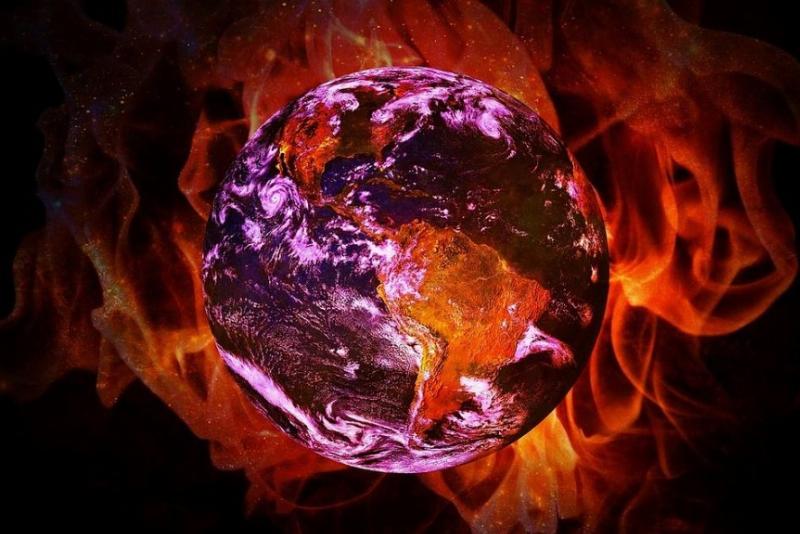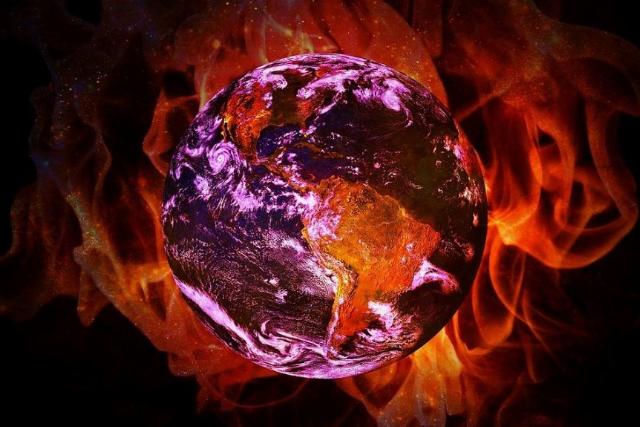


Practitioners of rigorous scientific methodology -- from the 17th century’s Galileo to 1965’s winner of the Nobel Prize in Physics, Richard Feynman -- would consider today’s climate research an embarrassment, shaped by uncritical orthodoxy and zealotry rather than genuine testing of hypotheses.
Classical science welcomes skepticism. It thrives in an environment where debate and revision are encouraged. Today’s climate conformists declare the debate “settled” and label those with questions as deniers, effectively outlawing the skepticism that drives scientific progress.
Plenty of 21st-century scientists have objected to this travesty. Dr. Matthew Wielicki, formerly of the University of Alabama, put it bluntly: “Science should be self-correcting. Climate science isn’t. It’s self-preserving.”
Dr. Richard Lindzen of the Massachusetts Institute of Technology notes that climate dogma has little to do with evidence: “The narrative is a quasi-religious movement predicated on an absurd scientific narrative.”
In essence, modern climate science has been transformed into a political apparatus dominated by campaign-style advocacy, subverting the foundational principles of evidence-based inquiry.
Climate cultists treat every warming or cooling event as anthropogenic by default, ignoring millennia of natural variation. “While substantial concern has been expressed that emissions may cause significant climate change, measured or reconstructed temperature records indicate that 20th- and 21st-century climate changes are neither exceptional nor persistent, and the historical and geological records show many periods warmer than today,” say scientists writing to the American Physics Society.
Gregory Wrightstone, geologist and best-selling author of A Very Convenient Warming, says that the longer geological record reveals numerous epochs with much higher temperatures and levels of atmospheric CO₂, all predating the influence of modern human activity.
Wrightstone rejects descriptions of current conditions as dangerous, saying that “Earth is growing greener, and temperature-related deaths are declining.” The evidence indicates the planet is not imperiled but flourishing.
Deaths from natural disasters are at historic lows, life expectancy continues to climb, and global crop yields in both advanced and developing economies are at record highs. Rising atmospheric CO2 is associated with improved plant growth, not planetary degradation.
The much-hyped “disappearing islands” of the Pacific continue to exist. Many atolls have grown in size due to coral and sediment accumulation. Arctic sea ice, too, has refused to vanish; the 2025 minimum extent is nearly half a million square kilometers larger than 2007.
Yet none of these realities make it into school textbooks or U.N. briefings. The crisis narrative is perpetuated to sustain a trillion-dollar “green” industry dependent on fear, political support and publicly financed subsidies.
Error-riddled computer models that back doomsday predictions violate core tenets of scientific methodology. When tested against known outcomes, they routinely fail.
In 2014, Dr. Roy Spencer compared real-world satellite data with over 90 climate models. Nearly all the models exaggerated warming. Spencer summarized the absurdity: “If 95% of your models disagree with observations, the models are wrong -- not reality.”
Dr. William Happer, a physicist at Princeton University and former scientific advisor to the U.S. government, notes: “Observations anchor our understanding and weed out the theories that do not work. This has been the scientific method for more than 300 years… computer models are not meant to replace theory and observation and to serve as an authority of their own.”
Yet these models drive the global policy agenda. The insistence on short time frames and cherry-picked data appear to support catastrophic scenarios; long-term geological records contradict them. Steve Milloy, author of JunkScience.com, described the phenomenon perfectly: “Climate science has become a political enterprise. The conclusion comes first; the data are adjusted later.”
Science belongs to critical thinkers, not to committees. The climate establishment will collapse as its funding dries up or the public stops believing its prophets. Reality will win -- as it always does -- but the longer the struggle, the higher the human cost of irrational policies.
Reason, empirical investigation and intellectual freedom have been undermined by a politically charged climate movement, which is a threat to science and civilization itself.
Vijay Jayaraj is a Science and Research Associate at the CO2 Coalition, Fairfax, Virginia. He holds an M.S. in environmental sciences from the University of East Anglia and a postgraduate degree in energy management from Robert Gordon University, both in the U.K., and a bachelor’s in engineering from Anna University, India.

Image: Picryl
